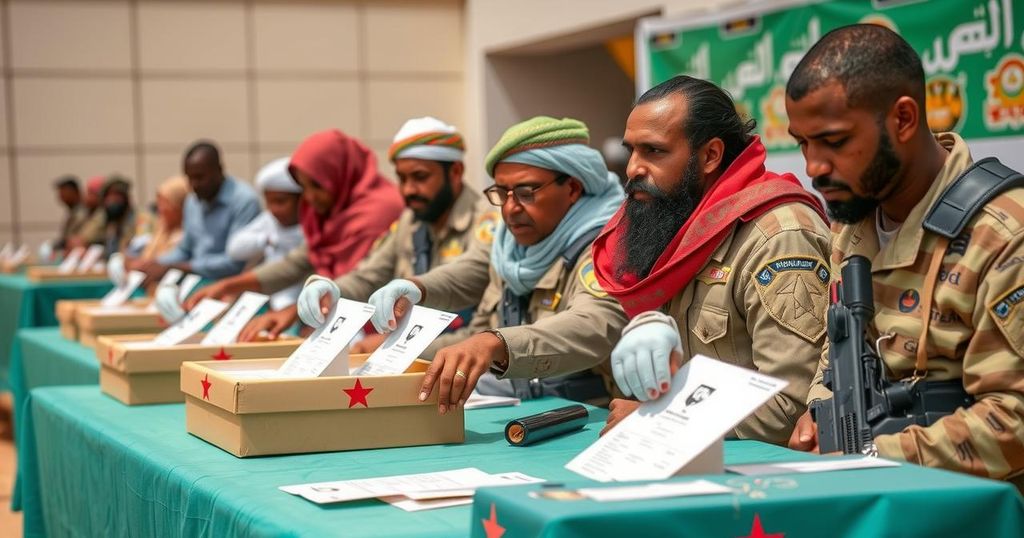Chad’s Military and Nomads Participate in Controversial General Elections
Chad’s military and nomadic tribes began voting in general elections characterized as pivotal to democratic transition, despite opposition boycotts labeling it a sham. Initial turnout figures suggest a substantial participation from both groups, while the electoral context involves past claims of fraudulent practices and the ongoing security threats posed by jihadist groups in the region.
On Saturday, members of Chad’s military and nomadic communities participated in general elections, which are characterized by the government as a crucial step towards democratic transition. However, this electoral process has been boycotted by opposition parties, who refer to it as a facade. While the majority of the country’s citizens will vote on Sunday, military personnel and nomads were scheduled to cast their ballots a day earlier due to logistical issues. Despite the opposition’s claims, reports indicate that approximately 45 percent of the military and nomadic populations had voted by midday, signaling a reasonably steady turnout.
Chad is navigating significant political changes after President Mahamat Idriss Deby Itno assumed control following the death of his father, Idriss Deby Itno, a long-standing ruler. Under Deby junior’s leadership, the elections are being promoted as part of a larger effort to achieve democratic governance, despite previous allegations of electoral fraud. The country has not witnessed legislative elections since 2011, with various hindrances such as jihadist threats and the COVID-19 pandemic preventing earlier votes from materializing, highlighting the fragile nature of its democratic processes during turbulent times.
In conclusion, the elections in Chad, particularly involving military and nomadic voters, reflect the country’s ongoing struggle between government-imposed transitions and opposition boycotts. As the process unfolds, the community’s interest in improving living conditions amid challenges from climate change and security threats remains paramount. The legitimacy of these elections will continue to be scrutinized in light of the opposition’s claims and historical context.
Original Source: www.barrons.com




Post Comment